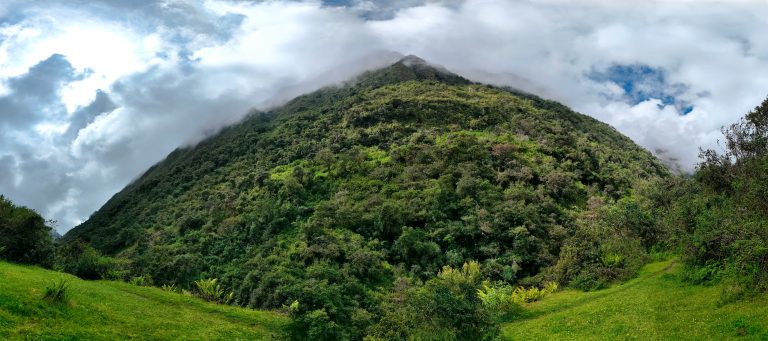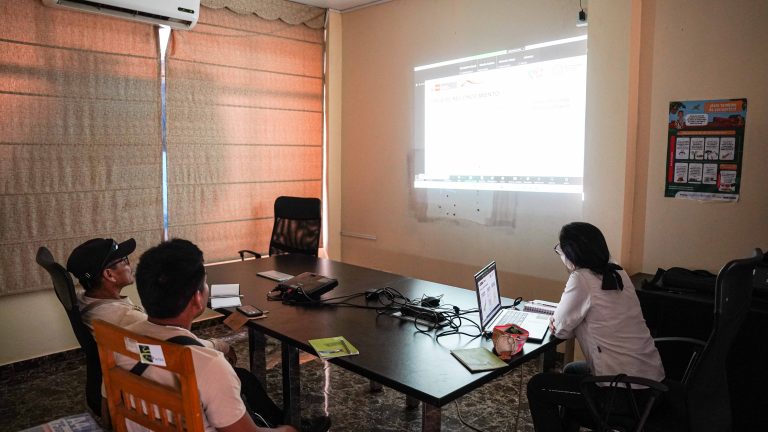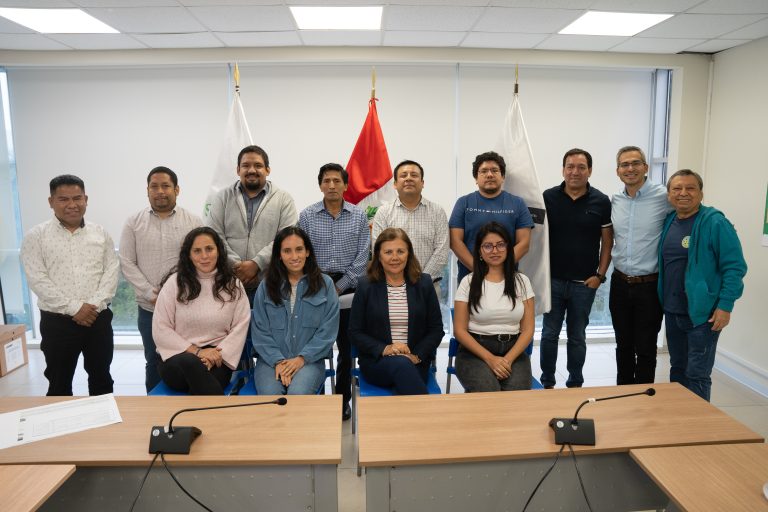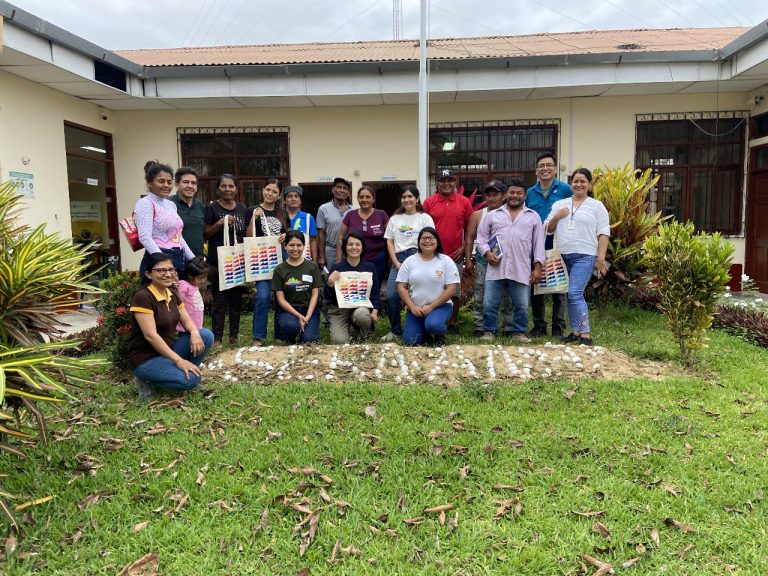Last Thursday, September 14 and Friday, September 15, the city of Moyobamba, in the San Martin region, was the epicenter of CEPF’s National Meeting of Partners and Allies in Peru, which brought together representatives of the 12 projects awarded for Peru in Phase III and a multi-country project, which also includes Bolivia and Colombia.
The two days were organized by Peru’s Regional Implementation Team (RIT), Profonanpe, with support from the organization Asociación Amazónicos por la Amazonía, and were also attended by members of the National Advisory Committee on CEPF Proposals (CONAP), the heads of the Cordillera de Colán National Sanctuary and the Chayu Nain Communal Reserve of the National Service of Natural Areas Protected by the State (SERNANP), the Regional Environmental Authority (ARA) of the Amazon Region, and the Regional Government of Cusco.
“It has been two days to share experiences, receive training and, above all, generate valuable agreements and synergies among CEPF’s partner organizations in Peru. In addition, we had the opportunity to discuss and learn about two conservation experiences in the KBA Moyobamba, which demonstrates the contribution of CEPF’s investment,” said Cynthia Garland, regional coordinator of CEPF’s Phase III investment in Bolivia, Colombia and Peru.

Agreements and synergies
The first day of the meeting had more than satisfactory results, as the partners not only discussed specific topics related to the achievements and progress of their projects, but were also able to debate ideas, engage in conversations and propose possible opportunities for future collaboration.
For example, organizations currently working in the Kosñipata Carabaya KBA in the Cusco region discussed the possibility of taking advantage of the ecotourism element to work in an articulated manner in the territory, for the benefit of this important Key Biodiversity Area.
In the KBA Cordillera de Colán, the need to take advantage of technical discussion spaces used during the implementation of projects was highlighted, in order to continue articulating among civil society organizations for the benefit of conservation.
In addition, there were also agreements to join efforts to promote the involvement and training of young people in the projects, as they have been identified as pillars to strengthen interculturality and generational change in the management of the territory and in the sustainability of future actions.
Another opportunity that is important to mention is the interest that exists in the Peruvian partners to learn how to train and teach local communities so that they can begin, little by little, to carry out participatory scientific research in their territories.

Visit to two conservation initiatives
The second day of the meeting allowed the partners and other stakeholders who arrived in Moyobamba to visit El Gran Mirador de Juningue Conservation Concession, which is located about 20 minutes from the city and is managed by the rural community of the Juningue hamlet; and the Juningue Private Conservation Area, managed by the Hoyos family, which are part of the project “Strengthening local capacities to improve the Management of Community Conservation Areas, Peru”, implemented by the Asociación Amazónicos por la Amazonía (AMPA).
Through this experience, the benefits generated by CEPF’s investment in the KBAs of the Tropical Andes Hotspot could be seen, since the members of this peasant round, who work with AMPA support, have been able to learn not only about conservation concession management, but also about product development and project design.
“We are very strengthened by the learning they give us every day on how to take care of our forests, how to prepare our annual reports to submit to the ARA, and now we are also formulating projects. It is a wonderful experience and we are very grateful for CEPF’s support,” commented Norvil Tantajulca, president of the peasant patrol.
On the same day, a visit was also made to the Juningue Private Conservation Area (ACP), which is an initiative managed by the Hoyos family, made up of 9 siblings, whose objective is to contribute to the conservation of the tropical rainforests in this area of the Moyobamba KBA, which are key because they are natural water catchers.
Thus came to an end the National Meeting of CEPF Partners and Allies in Peru. With agreements, alliances, opportunities to work together and with the experience of having seen that the efforts of partner organizations are not in vain, but are reflected in the improvement of the quality of life of people and in the search to continue spreading the value of conservation.













